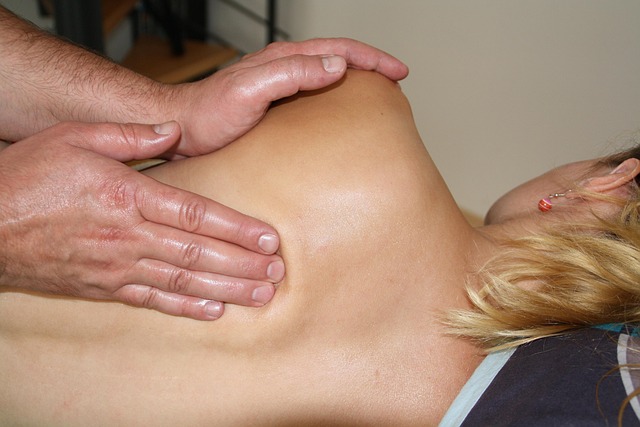Cold water therapy soothes red, irritated skin by constricting blood vessels, reducing inflammation, and improving circulation, leading to a calm, glowing complexion. Incorporating cold water into your skincare routine, like morning splashes or evening cold showers, promotes skin health, tightens pores, and enhances texture and tone over time. However, individuals with sensitive skin or specific medical conditions should exercise caution, starting with lukewarm water and gradually lowering the temperature.
Redness and irritation can disrupt your skin’s natural glow, but a simple solution lies in the chill—cold water therapy. This powerful natural remedy has gained popularity for its ability to soothe and calm sensitive skin. From reducing post-shave irritation to mitigating the effects of environmental stressors, cold water offers a refreshing approach to skincare.
In this article, we’ll explore the science behind cold water’s benefits, discover practical ways to incorporate it into your routine, and discuss the potential side effects for achieving that desired glowing complexion.
Understanding Skin Redness and Irritation: Common Causes and Impact
Skin redness and irritation are common issues that can be caused by various factors, impacting both the appearance and comfort of your skin. In many cases, redness is a natural response to internal or external stimuli, serving as a signal from the body to indicate discomfort or inflammation. For instance, environmental triggers such as exposure to extreme temperatures, harsh winds, or polluted air can irritate the skin’s delicate barrier, leading to redness and a sensation of heat. Additionally, certain conditions like rosacea, allergies, or even over-exfoliation can cause persistent redness that affects daily life.
The impact of chronic redness and irritation goes beyond the visible symptoms. It can disrupt the skin’s natural balance, causing dryness, peeling, and even permanent damage to the skin’s texture. Moreover, redness often leads to a cycle of discomfort, making individuals more conscious of their appearance and less confident about showcasing their skin. However, incorporating cold water therapy into your skincare routine can be a game-changer. Cold water has been shown to soothe inflamed skin, constrict blood vessels, and reduce the appearance of redness, fostering a calm and glowing complexion.
The Science Behind Cold Water Therapy for Skin Health
The Science Behind Cold Water Therapy for Skin Health
Cold water therapy, particularly the practice of splashing or immersing oneself in cold water, has gained attention for its potential skin-soothing benefits. When cold water comes into contact with the skin, it triggers a series of physiological responses that work to reduce inflammation and calm irritated skin. One key mechanism is vasoconstriction—the narrowing of blood vessels under the skin’s surface, which helps to minimize redness and swelling. Additionally, cold water can temporarily numb the skin, providing a soothing effect that alleviates itchiness and irritation.
This therapy also boosts circulation in the long run by encouraging new blood cell production. As cold water stimulates the skin, it increases oxygen and nutrient delivery to the surface layers, promoting healthier, more radiant-looking skin. By enhancing skin hydration and reducing dryness, cold water therapy contributes to a glowing complexion—a sought-after outcome for those prioritizing skin health and beauty.
Practical Applications: Incorporating Cold Water into Your Skincare Routine
Incorporating cold water into your skincare routine is a simple yet powerful way to achieve that coveted glow. Cold water therapy has long been used as a beauty secret, and its benefits are backed by science. When you expose your skin to cool temperatures, it constricts blood vessels, reducing inflammation and redness instantly. This makes it an effective remedy for conditions like rosacea or even daily environmental stressors that leave your complexion looking flushed.
A quick splash of cold water in the morning can help wake up your skin, tightening pores and giving it a refreshed appearance. Similarly, ending your day with a cold shower not only soothes irritated skin but also promotes better sleep, which is essential for skin health. Over time, regular use of cold water can enhance your skin’s overall texture and tone, contributing to that radiant, healthy glow that everyone aspires to achieve through their skincare regimen.
Benefits and Potential Side Effects: What to Expect from Cold Water Treatment
Cold water therapy, often used as a quick and natural remedy, offers several benefits for the skin. When applied to inflamed or irritated areas, cold water can soothe and reduce redness almost immediately. This is because cold temperatures constrict blood vessels, which helps to minimize swelling and calm any skin discomfort. Regular use of cold water treatments may even improve skin tone and texture, promoting a glowing complexion. Many people find that post-shower, splashing cool water on the face refreshes and revives tired-looking skin.
While generally safe, there are some potential side effects to consider. For individuals with sensitive skin or those experiencing severe irritation, direct exposure to cold water may cause further discomfort or even frostbite in extreme cases. It’s advisable to start with lukewarm water and gradually lower the temperature to ensure tolerability. Additionally, people with certain medical conditions, such as Raynaud’s disease, should avoid cold water therapy as it can worsen their symptoms.
Cold water therapy emerges as a simple yet powerful tool for achieving glowing, healthy skin by reducing redness and irritation. By understanding the science behind its benefits and incorporating practical applications into daily skincare routines, folks can experience a noticeable transformation. While generally safe, it’s important to be aware of potential side effects and consult a professional if concerns arise. Embracing cold water as part of your regimen could revolutionize your skin’s radiance and overall health.
